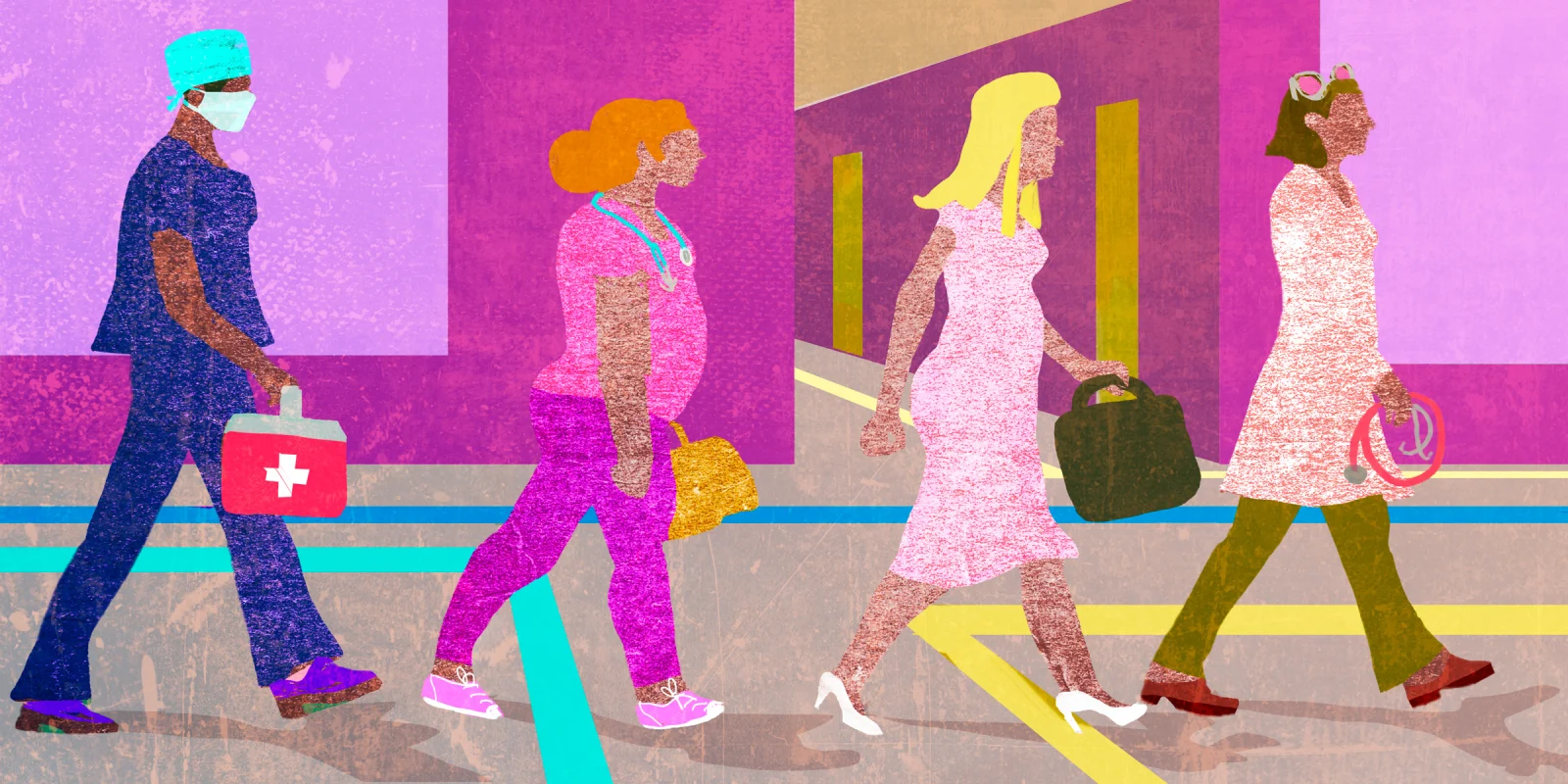As you begin the journey in medicine, I have four words for you: tender front, strong back. Your gifts as a doctor are desperately needed in the profession. This metaphor will give you strength, especially if you feel overwhelmed or want to give up.
“Soft front, strong back” was first used by Dr. Joan Halifax, a Zen Buddhist teacher and anthropologist. It’s an expression that has been expanded further by psychologists like Kristin Neff, PhD and Tara Brach, and has two basic concepts.
A strong back represents the internal strength that arises when we feel safe and sense that we truly belong. We feel worthy, courageous, and empowered. Think of a situation — even a brief moment — where you felt seen or validated, or felt a strong sense of connection or belonging. In that moment, you were connecting to your strong back.
Now the tender front: This is an intentional act of taking off emotional armor. Not easy. Why would we even do this? Just like we attend to our patients with kindness, we must bring a similar presence to whatever is happening in ourselves. When we’re hurting, we deserve tender care for our own vulnerability, too.
If you’re like me, you may wonder, “Could I fast forward over the vulnerability part, and just cut to the next step?” Unfortunately, it doesn't work that way. The nervous system is intelligent, and emotions happen for a reason. Vulnerability is part of life. Having a tender front means befriending our unpleasant feelings since they're part of our experience, too.
Author Brené Brown defines vulnerability as “the ability to deal with uncertainty and manage emotional risk.” Her research shows that if we try to outrun vulnerability, it limits our capacity to experience love, belonging, creativity, and joy. The culture of medical school encourages us to bury our pain and “suck it up.” So — it may sound backward, but turning toward your vulnerability will actually help you prevent burnout.
Having a tender front is a lot easier when we have a safe and supportive environment in which to practice. Unfortunately, medical culture is often psychologically unsafe. Experiences of bullying and mistreatment are all too common, and can be even worse for those with marginalized identities. One action that has the potential to change this hurtful cultural norm is to offer support when you witness another being mistreated, even in a small way. Why? It helps that person find their strong back — to feel they belong again.
I experienced the power of this act firsthand. A senior colleague in a meeting took a condescending tone toward me. I knew this was his tendency, so didn't take it personally. Later, I received several emails from junior colleagues who were there. They all had the same message: You were treated unfairly. We value your presence and who you are.
My initial response was to dismiss the episode as “no big deal.” But in the weeks that followed, the power of their words grew. I gave myself permission to acknowledge that I didn't deserve to be treated that way. Even though I was accustomed to it, it was painful to feel devalued. My colleagues helped me view my experience more tenderly.
When you feel you belong, it generates courage for you to find your voice. As Malala Yousafzai says, “When the whole world is silent, even one voice becomes powerful." In medicine, patients often suffer alone. Your tender presence to their pain enables them to find their voice.
As women in medicine, our gifts have the potential to transform some of the most dysfunctional aspects of medical culture. We can use our voice to honor the humanity of those below us in the medical hierarchy. Take time to recognize the young ward clerk who doubts herself. Spend a moment to tell the security officer who goes the extra mile how much you appreciate her presence.
Bearing witness facilitates the healing process when mistreatment has occurred. It offers support and allows the narrative of one's experience to be reframed. While the harm cannot be undone, the weight and impact of what has happened can be lightened. This simple act of noticing facilitates a larger cultural transformation, one interaction at a time.
As a kid, I witnessed my mom's journey as a woman in medicine. There were few "lady doctors" where we lived, so her professional path was often solitary. At the time, there was minimal recognition of the inequalities for women in medicine. Despite these barriers, her humble leadership and conscientious patient care had a huge impact. How do I know this? Because patients and community members literally would stop and tell me this as I grew up.
Today, systemic solutions are urgently needed in health care. Tender, strong, and caring acts create culture change, too. Nurture yourself as much as you nurture your patients.
You belong. Your voice matters.
A tender front and strong back are critical to become the healer you set out to be.
What would your four word advice be to other women in medicine?
Laura Warren, MD is a Harvard-trained psychiatrist in private practice. She is developing a program, Healers Revived, to help health care professionals mitigate burnout and heal from emotional fatigue. She can be reached at mail@laurawarrenmd.com.
Illustration by Jennifer Bogartz






